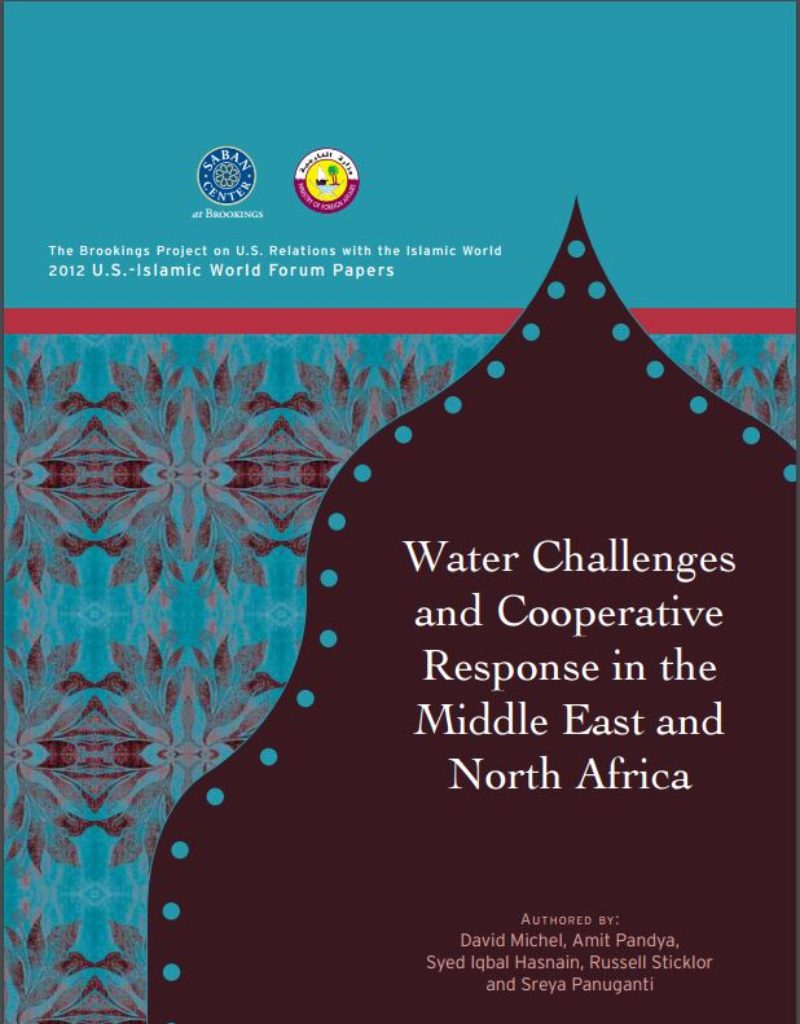Societies across the Middle East and North Africa (MENA) have long balanced the competing water demands of households, industry, and agriculture. Careful management of water resources has been an absolute necessity in this region where annual renewable water supplies average about 623.8 billion cubic meters (BCM), compared to Africa’s 3,950 BCM, Asia’s 12,009 BCM, and the world total of 43,764 BCM.
Recent developments that have imposed substantial stress on societies and challenged policymakers, scientists, engineers, and planners alike include population growth, migration, industrialization, urbanization, pollution, and global warming and other environmental change. Today, growing water demand, decreasing water availability, and deteriorating water quality affect environmental quality, food security, municipal infrastructure, economic development, and overall human security in most societies of the MENA region. Transboundary tensions threaten international peace and stability. These strains pose serious challenges to regional prosperity and social order. It is no exaggeration to say that water policy and water security are as central a determinant of the future well-being of the MENA countries as is governance or ideology.
To continue reading and download the full report, click here.
To learn more about the 2012 U.S.-Islamic World Forum, convened by the Brookings Project on U.S. Relations with the Islamic World, click here.

